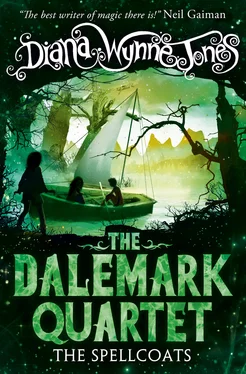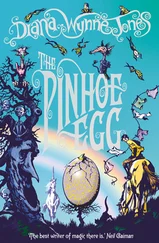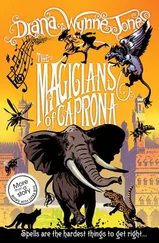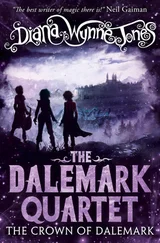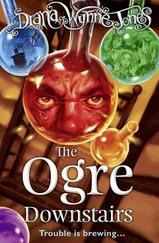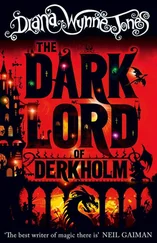In the morning the messengers went to the next village to choose men there, giving the men of Shelling a week to prepare themselves. For that week we were weaving, baking, hammering and mending for dear life, getting Gull and my father ready. Hern was like a broody hen the whole time. He made Duck miserable too. Robin says I was as bad, but I deny it. I had found a way to comfort myself by pretending I was a very fierce and warlike person called Tanaqui the Terror of the Heathen. When the messengers came back to Shelling, I pretended they would hear of this person and send Zwitt to fetch her to lead our land to war. I told it to our Undying, to make it seem more true. I wish now that I had not done that. Sometimes I think this is what brought such troubles on us. You should not speak falsehoods to the Undying.
Robin says we all got worse, Hern, Duck and I, every time Aunt Zara came in. She kept coming and thanking my father for taking Gull to look after Kestrel, and she kept promising she would look after us all when they were away. It was all words. She never came near us. But I think my father believed her, and it took a weight off his mind.
After a week the messengers came back, bringing some hundreds of men with them. That night, before they were to leave, my father and Gull naturally prayed to the Undying for safety.
Robin said anxiously, “I’d be happier if you took one of them with you.”
“They belong by this hearth,” said my father. He would not say any more about it. “Hern,” he said. “Come here.”
Hern would not come at first, but my father dragged him by one arm over to the Undying. “Now put your hand on the One,” he said, “and swear that you will stay with Duck and the girls and not try to follow us to war.”
Hern was red in the face, and I could see he was very angry, but he swore. That is my father all over. He never said much – they called him the Clam with good reason – but he saw what was in people’s minds. After Hern had sworn, Father looked at Duck and me. “Do I need to make you two swear as well?”
We said no. Duck meant it. He had grown scared that week while he was sharpening my father’s weapons. I was still fancying to myself that the messengers would send Zwitt in the morning to fetch Tanaqui the Terror.
So much for my fancies! Next morning all the men from Shelling marched away except Zwitt. Zwitt – would you believe this! – fell ill and could not go. What kind of illness is it that has a man in a fever in the morning and out fishing in the afternoon? Hern says it is a very rare and uncommon disease called cowardice.
We went with the rest of Shelling to wave the army off. I do not think I like armies. They are about five hundred men, which is quite a large crowd of people, dressed in all sorts of old tough rugcoats, and some in fur or leather, so that they look as brown and scaly as River mud. Each of these people carries bags and weapons and scythes and pitchforks, all in different ways, so that the army looks like an untidy pincushion or a patch of dead grass. There is a King’s man riding at the side, shouting, “All in line there! Left, right, left, right!” The crowd of people do as he says, not willingly, not fast, so that the army flows off like the River, brown, sluggish and all one piece. As if people could become like water, all one thing! We could hardly distinguish Father or Gull, though we looked hard. They had become all one with the rest. And as the army flows off, it leaves a dull noise, dust in the air, and a smell of too many men, which is not pleasing. It made me feel sick. Robin was white. Duck said, “Let’s go home.” As for Hern, I truly think he lost all desire to go to war that morning, just as I did.
Zwitt called everyone together and said the war would not last long. He said confidently that the King would soon beat the Heathens. I should not have believed a bad man like Zwitt. It was many months before we had news.
Life in Shelling went on, but it was small, quiet and empty. The autumn floods came late. They were less than usual and smelt bad. Everyone agreed that the River was angry because of the Heathens – and they began saying other things too, that we did not hear until later. The floods did not bring as much driftwood as usual, but they washed up strange fish, which nobody liked to eat.
Though Aunt Zara did nothing to help the four of us, we did not go short. We had vegetables from the garden, and the flour was milled from our field. Duck and Hern always catch fish. Duck can find clams by instinct too, I think. The hens were laying well, even in the winter, and we had the cow for milk. Money for other things was scarce, because we had just laid in a great deal of wool when Zwitt’s flock was sheared, before the Heathens came. This I combed and spun and dyed in the ways that my mother had taught Robin and my father, and they have taught me. My mother taught Robin to weave. I was too young to learn when she died, but Robin taught me, and now I do it better than she does. It is that same wool I am using now to weave our story. We did not find much market for my weaving in Shelling that winter. A number of children needed winter rugcoats. But my main – and my best – work is always for weddings. The girls’ families buy my finest rugcoats, with stories and poems in them, to give to the boy they are going to marry. But there were no weddings, with the men all gone. And after we went across the River, no one wanted any of my weaving.
The floods had left us no driftwood to speak of, so we rowed across the River when the leaves started falling to cut wood from the forest on the other side. No one else in Shelling crosses the River. I asked Aunt Zara why once, and she said that the old mill was cursed by the River, and the forest round it, and that they were haunted by a cursed spirit in the shape of a woman. That was why the new mill was built, up along the stream. When I told my father what Aunt Zara said, he laughed and told me not to listen to nonsense. It is quite a pleasure to me to sit weaving in this same old mill, with this same cursed forest round me, at this very moment, and take no harm. There’s for you, Aunt Zara!
The day we cut wood, the light was rich with the end of autumn. It was like a holiday. We broke the stillness of the trees by running about shouting, catching falling leaves, and playing Tig. I do not think there were any spirits who minded, in spite of what Robin said. And she ran about and shouted with us, anyway. She was far more as I remember her, that day, before she grew up and got all shy and responsible. We had lunch sitting on the grass by the old millpool, and after that we cut wood. When the River was pale in the dusk, we rowed back over, with wood heaped in such a stack that the boat was right down in the water and we had to sit still for fear of being swamped. My hair was like a real bush, full of twigs and leaves. I was really happy.
Next day Zwitt and some of the old people came to us with sour faces. They said we were not to pasture our cow with the others in future. “We do not give grazing rights to godless people,” Zwitt said.
“Who’s godless?” Duck said.
“The River has forbidden people to cross to the mill,” Zwitt said. “And you were all there all yesterday. The River would punish you worse than this if you were older.”
“It’s not the River punishing us. It’s you,” said Duck.
Hern said, “You didn’t punish my father for ferrying the strangers over there.”
“Who told you we were there?” I said.
“Zara told me,” said Zwitt. “And you watch how you speak to me, now your father’s away. I won’t stand for rudeness.”
Robin wrung her hands when they had gone. It was her latest ladylike habit, but it meant she was really upset. “Oh dear! Perhaps the spirits over there are angry. Do you think we did offend the River?”
Читать дальше
